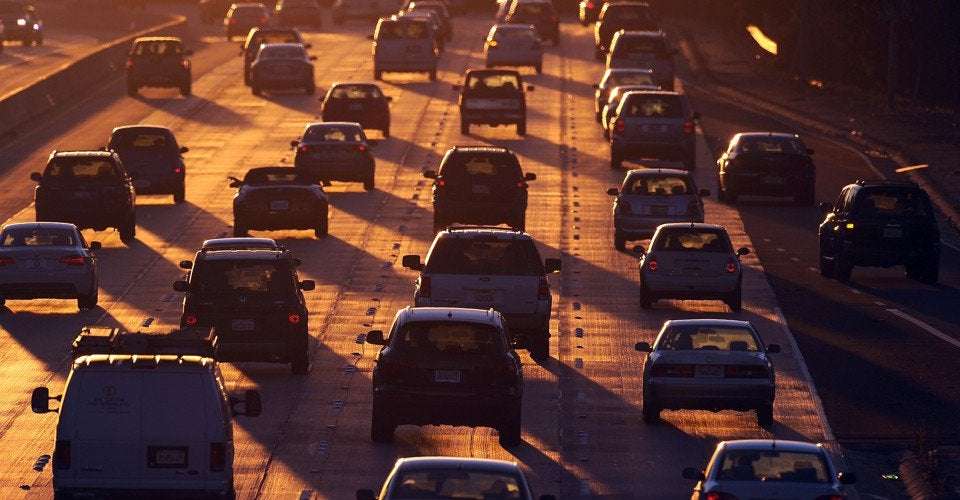As I detail in a forthcoming journal article, over the course of several generations lawmakers rewrote the rules of American life to conform to the interests of Big Oil, the auto barons, and the car-loving 1 percenters of the Roaring Twenties. They gave legal force to a mind-set—let’s call it automobile supremacy—that kills 40,000 Americans a year and seriously injures more than 4 million more. Include all those harmed by emissions and climate change, and the damage is even greater. As a teenager growing up in the shadow of Detroit, I had no reason to feel this was unjust, much less encouraged by law. It is both.
It’s no secret that American public policy throughout the 20th century endorsed the car—for instance, by building a massive network of urban and interstate highways at public expense. Less well understood is how the legal framework governing American life enforces dependency on the automobile. To begin with, mundane road regulations embed automobile supremacy into federal, state, and local law. But inequities in traffic regulation are only the beginning. Land-use law, criminal law, torts, insurance, vehicle safety regulations, even the tax code—all these sources of law provide rewards to cooperate with what has become the dominant transport mode, and punishment for those who defy it.
Let’s begin at the state and local levels. A key player in the story of automobile supremacy is single-family-only zoning, a shadow segregation regime that is now justifiably on the defensive for outlawing duplexes and apartments in huge swaths of the country. Through these and other land-use restrictions—laws that separate residential and commercial areas or require needlessly large yards—zoning rules scatter Americans across distances and highway-like roads that are impractical or dangerous to traverse on foot. The resulting densities are also too low to sustain high-frequency public transit.
Further entrenching automobile supremacy are laws that require landowners who build housing and office space to build housing for cars as well. In large part because of parking quotas, parking lots now cover more than a third of the land area of some U.S. cities; Houston is estimated to have 30 parking spaces for every resident. As the UCLA urban-planning professor Donald Shoup has written, this mismatch flows from legal mandates rather than market demand. Every employee who brings a car to the office essentially doubles the amount of space he takes up at work, and in urban areas his employer may be required by law to build him a $50,000 garage parking space.
For those who didn’t get the message from the sprawling landscape that zoning has created, the tax code sharpened it by lavishing rewards on those who drive and punishing those who don’t. On its own terms, the mortgage-interest tax deduction is neutral as to the type of home financed, but—given the twin constraints of zoning and mortgage lending—the deduction primarily subsidizes large houses in car-centric areas. Those who walk or bike to work receive no commuter tax benefit, while those who drive receive tax-deductible parking. Another provision of the tax code gives car buyers a tax rebate of up to $7,500 when their new vehicles are electric or hybrid; buyers of brand-new Audis, BMWs, and Jaguars can claim the full $7,500 from the American taxpayer. Environmentally, these vehicles offer an improvement over gas-powered cars (but not public or active transit). Even so, 85 to 90 percent of toxic vehicle emissions in traffic come from tire wear and other non-tailpipe sources, which electric and hybrid cars still produce. They also still contribute to traffic, and can still kill or maim the people they hit. Why are we taxing bus riders to pay rich people to buy McMansions and luxury electric SUVs?

yankerage on July 10th, 2019 at 10:08 UTC »
This town needs a monorail!
swingerofbirch on July 10th, 2019 at 09:04 UTC »
Great movie from my childhood goes into this in great detail: Who Framed Roger Rabit
accountsdontmatter on July 10th, 2019 at 08:17 UTC »
I didn't realise it was due to zoning laws that you all had such brilliantly large gardens and open spaces.